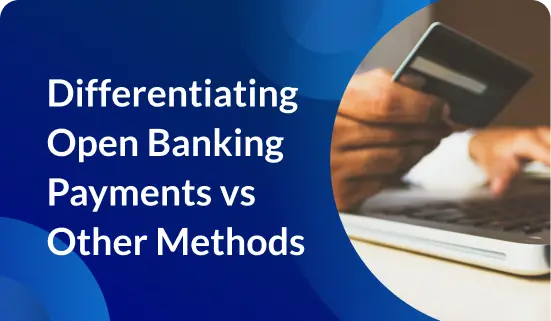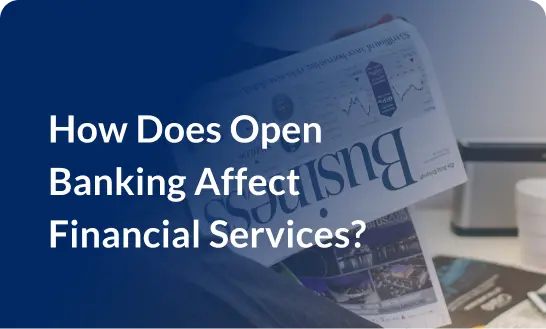The benefits of open banking are redefining financial interactions by prioritizing transparency and customer empowerment.
With secure API technology at its core, open banking enables individuals to share their financial data safely with third-party applications, unlocking a suite of innovative, tailored financial services. This groundbreaking approach not only simplifies how we access and use financial products but also stimulates healthy competition, driving down costs and enhancing service quality.
As we embrace open banking, we are stepping into a new era of finance—one where convenience, security, and customization converge to meet unique financial needs. Join us as we explore the benefits of open banking in this article.
What is Open Banking?
Open banking is reshaping the financial landscape with a simple yet powerful idea: using secure Application Programming Interfaces (APIs) to share financial data. By doing so with strict customer consent, it ensures both transparency and security in handling personal and financial information.So, who benefits from open banking?
This innovation impacts three main groups: consumers, businesses, and banks. Consumers enjoy a more customized banking experience, benefiting from financial services that directly cater to their needs and help them manage their finances more effectively. This also offers them greater control over their financial information.
For businesses, particularly small and medium-sized enterprises (SMEs), open banking levels the playing field. They gain access to a suite of financial services that were traditionally only available to larger companies, such as faster payment processing and easier access to credit.
Banks, too, find value in open banking. It benefits and challenges them to innovate by breaking their longstanding monopoly on customer financial data. This encourages the development of new, more efficient services and compels banks to enhance their customer service to stay competitive.
The broader marketplace leverages it as well. Open banking fosters a vibrant competitive environment that drives innovation, reduces costs, and improves product and service quality. As a result, everyone from traditional banks to FinTech startups is motivated to up their game, benefiting consumers with better choices and enhanced services.
For Consumers
1. Financial Data Control
Open banking puts consumers in charge of their financial data. By consenting to share their data, consumers can use multiple financial services in a coordinated way. For example, someone could allow their budgeting app to access their bank data to provide real-time spending alerts and savings tips.
2. Intelligent Finance Management
With access to comprehensive financial data API, consumers can use AI-driven tools to analyze spending patterns, predict future expenses, and make smarter financial decisions. This could mean getting personalized advice on how to manage debt or save for a goal based on their spending habits.
3. Customized Financial Services
Consumers benefit from services precisely tailored to their needs. For instance, a person might receive customized loan offers from various providers through a single app, all optimized for their financial situation and credit score.
4. Immediate Online Payments
Another open banking perk is that it facilitates quicker and cheaper online transactions directly from bank accounts. This means consumers can pay for services or transfer money instantly without needing credit cards or processing fees, making online shopping or bill payments more seamless.
For Businesses
1. Streamlined Operations
Open banking automates and integrates various financial processes, greatly enhancing business efficiency. By using APIs, companies can automatically reconcile invoices and payments, reducing manual errors and saving valuable time. For example, a retail store can seamlessly sync sales data with bank transactions, ensuring accuracy and improving financial management, which allows businesses to focus more on strategic activities and less on routine tasks.
2. Enhanced Automation
APIs for open banking enable businesses to automate essential financial operations such as accounting, payroll, and customer verification, traditionally done manually. This automation not only accelerates these processes but also allocates resources more efficiently towards strategic growth activities. For instance, a company can streamline its payroll system, ensuring accurate and timely employee payments without manual input, thereby enhancing operational efficiency and allowing focus on broader business goals.
3. Cutting-Edge Solutions
One of the benefits of open banking is that it fuels innovation by providing businesses access to advanced financial technologies that were once exclusive to large financial institutions. This access enables companies to deploy sophisticated tools for financial forecasting and risk management, enhancing their ability to make informed decisions and mitigate potential risks. By leveraging these high-level tools, even smaller firms can anticipate market trends and manage financial uncertainties more effectively.
4. Simplified Loan Access
Open banking technology, like Brankas Data, simplifies the loan application process by granting lenders access to a business’s financial data with permission. This streamlined approach allows for quicker credit decisions and potentially more advantageous terms, as lenders can make more accurate assessments of a business’s financial health. This enhanced transparency and access to real-time data can lead to more personalized and favorable financing options for businesses.
5. Rapid Payments
Businesses can significantly speed up payment processing, allowing funds to transfer between accounts more swiftly. This enhanced efficiency aids organizations in managing their cash flow more effectively, which is crucial for maintaining liquidity. Faster payments also enable businesses to seize market opportunities more rapidly, as they can reinvest funds or cover operational costs without delay, helping them stay competitive and responsive in a competitive market environment.
6. Lower Costs
Reducing transaction costs by bypassing traditional payment gateways through open banking can lead to significant savings for businesses. Instead of relying on credit card transactions, which often incur high fees, businesses can process payments directly through bank transfers at a lower cost. This reduction in fees allows them to allocate more funds towards growth and operational improvements, enhancing overall profitability and financial health. For example, an e-commerce platform might save on transaction fees by benefiting from open banking for direct bank payments.
7. Increased Conversions
Simplifying payment processes and expanding payment options through open banking reduce cart abandonment and boost sales conversions, especially crucial in e-commerce. By enabling direct bank-to-bank transactions, it streamlines the checkout process, making it faster and more user-friendly. This leads to a smoother payment experience, significantly improving customer satisfaction and increasing the likelihood of purchase completion.
8. Superior Customer Experience
Lastly, open banking allows businesses to enhance customer service by tailoring their offerings based on a deeper understanding of customers’ financial behaviors. This access to detailed financial data enables companies to customize services and products to meet specific customer needs and preferences, significantly boosting customer satisfaction. For instance, a financial service provider might use insights from open banking to offer bespoke investment advice or savings plans that align closely with individual spending habits and financial goals.
For Banks
1. Leveraged Customer Data
The advantage of open banking is that it allows banks to access a wealth of customer financial data, enabling them to tailor products and services more precisely. For example, a bank might use this data to offer customized loan rates based on individual spending habits and savings.
2. Enabled Market Competition
APIs for digital banking level the playing field, allowing smaller banks to compete with larger institutions by offering innovative services. This competition can lead to better rates and services for customers.
3. Enhanced Customer Loyalty
By offering personalized banking experiences and proactive financial advice based on real-time data, banks can increase customer loyalty. For instance, banks could notify customers of potential savings or investment opportunities directly tailored to their financial situations.
4. Boosted Compliance and Security
Open banking enforces strict data sharing and security protocols, enhancing overall banking security. Banks benefit from improved compliance with regulatory standards, reducing the risk of data breaches and increasing trust among consumers.
Reap the Benefits of Open Banking with Brankas
Open banking is transforming the financial landscape, offering significant advantages for consumers, businesses, and banks alike.
Consumers enjoy greater control over their financial data, along with personalized financial services. Businesses benefit from streamlined operations, enhanced automation, and improved customer experiences, leading to higher conversion rates. And lastly, banks can leverage extensive customer data to offer tailored products, enhancing customer loyalty and ensuring compliance with robust security measures.
Embrace the future of finance by leveraging Brankas’ innovative open banking solutions to unlock these benefits and drive forward in a competitive market.










